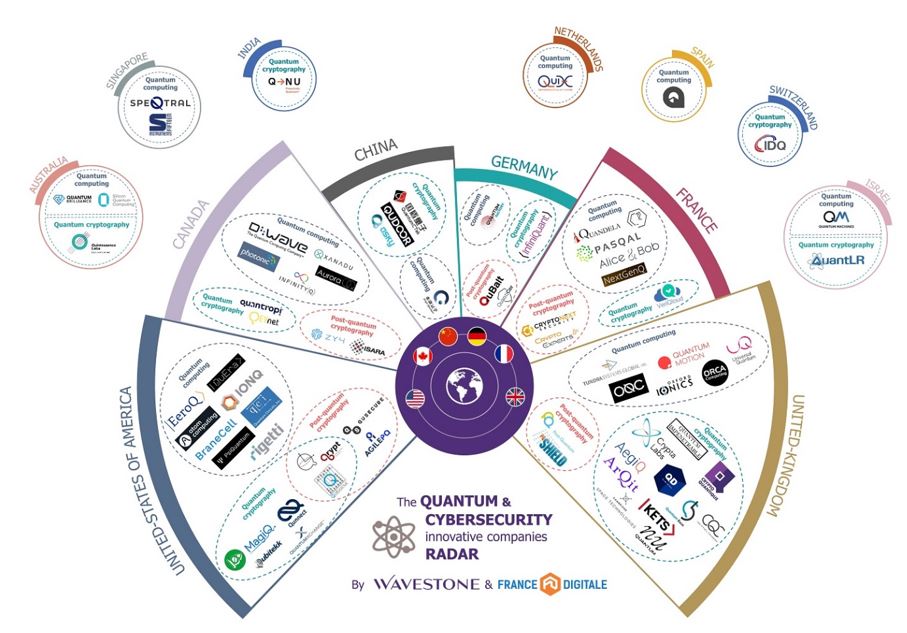A France Digitale/Wavestone 2020 study
Today, few decision-makers have addressed the sovereignty issues posed by quantum computing. To begin with; cybersecurity. To safely converse on an unsecured network like the Internet, our communications use cryptography. It will only take 8 hours for a 1 million qubit quantum computer to break the encryption used today to secure most of our communications.
Therefore, quantum computing becomes a major challenge; it becomes key to project in itself, and in order to protect the data we exchange when using post-quantum encryption algorithms. The investments will be large to enable the necessary: we will have to change the software of all our computers and mobile phones.

Gérôme Billois
Partner Wavestone
Quantum can also become a leading opportunity to , with the creation of practically tamper-proof communication . These opportunities, even remote and still in the state of research, can be a game-changer in terms of digital trust.
In the Sino-American war, what is Europe's place?
An international technological race has begun; Europeans are no longer running this race. When China invests $10 billion in Hefei in a 37-hectare research center, when the United States launches the National Quantum Initiative Act in 2018 providing $2 billion in investment over five years, what is the European Union doing? Our “quantum flagship”, created in 2018 with an overall budget of one billion euros over ten years, aims to finance international research projects but at this stage no European strategic plan has been implemented.
A lack of coordination between countries and, above all, a lack of investment, make competing difficult currently. It is time for Europe to enter this competition, building on its strengths. The continent hosts elite fundamental research and the creation of more than 80 quantum startups.
A Round-Up of at the intersection of quantum computing and cybersecurity:
- quantum computer to break encryption (quantum computing),
- quantum cryptography to secure communications (distribution of quantum keys and the generator of quantum random numbers),
- protection against quantum threat (post-quantum cryptography).
France has a real place to take in the quantum shift
For the challenges of sovereignty to be met, a genuine European quantum plan must be created and based on three key pillars
- Collaboration between member states – notably through the creation of the European quantum research organization.
- The collaboration between European researchers, startups and industries, driven by the European public order.
- The transdisciplinary of quantum projects, including cybersecurity but also all other uses

Nicolas Brien
CEO France digitale
It is also a call for large private companies to take part in research and development in collaboration with research laboratories and startups, and to participate in the financing of them.
France has a leading role to play, especially now that the UK is about to leave the European Union. As we noted in our previous study (French only), France is home to the most quantum computing startups in Europe, behind the UK. A leader in fundamental research, France can strengthen its game and must not miss this technological shift.
This publication was written with France Digitale






